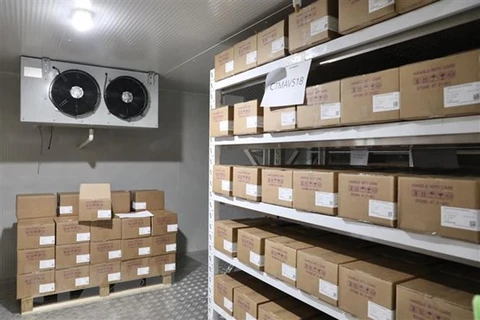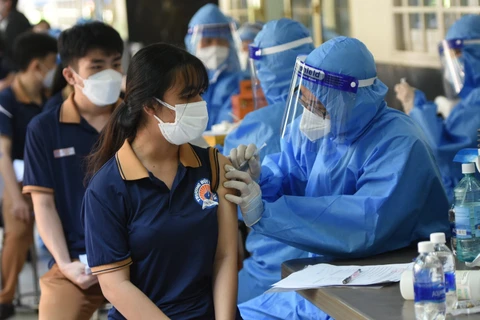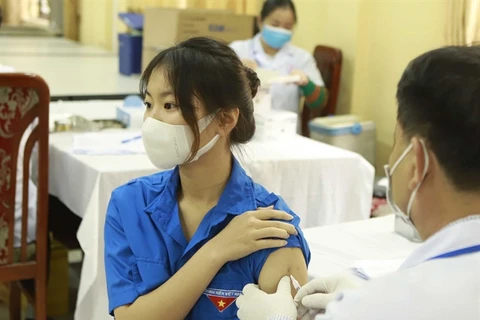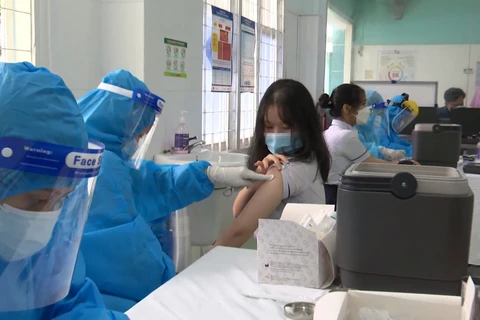Hanoi (VNA) – The impacts of COVID-19 vaccine race to international relations in the world and Vietnam were discussed at a scientific forum held by the Vietnam Academy of Social Sciences (VASS) in Hanoi on January 12.
The forum, themed “COVID-19 vaccine race and influence competition among countries” gathered scientists, reseachers, businessmen, and management officials across the country who gave feedback and proposals on policies related to the topic.
Addressing the event, VASS Vice President Dang Xuan Thanh held that COVID-19 has been causing non-traditional insecurity in health care and economy, while competition among world powers has been posing global insecurity.
The forum, themed “COVID-19 vaccine race and influence competition among countries” gathered scientists, reseachers, businessmen, and management officials across the country who gave feedback and proposals on policies related to the topic.
Addressing the event, VASS Vice President Dang Xuan Thanh held that COVID-19 has been causing non-traditional insecurity in health care and economy, while competition among world powers has been posing global insecurity.
Associate Prof. Dr. Le Van Dong, Director of the Military Institute for Preventive Medicine, noted that there have been four major COVID-19 vaccine production technologies applied in mass production in the world. He noted that countries are striving to produce vaccines to race with SARS-CoV-2 variants.
Associate Prof. Dr. Bui Quang Tuan, Director of the Vietnam Institute of Economics, said that the research, development or cooperation in COVID-19 vaccine production technology transfer will facilitate Vietnam's vaccine diplomacy, creating bilateral partnership with other countries and reducing its dependence on outside sources of vaccines.
Tuan proposed that Vietnam should restructure the National COVID-19 Vaccine Fund with higher spending on COVID-19 vaccine and treatment medicine research and development activities.
Meanwhile, it is necessary to complete mechanims and policies related to vaccine diplomacy, while increasing the donation of vaccines and medical supplies to other countries to enhance the country’s influence and foster ties with other nations, he said.
Participants at the event also clarified the impacts of COVID-19 vaccine race to developing countries, including Vietnam, as well as the role of vaccine diplomacy in strengthening Vietnam’s relations with other countries./.
Associate Prof. Dr. Bui Quang Tuan, Director of the Vietnam Institute of Economics, said that the research, development or cooperation in COVID-19 vaccine production technology transfer will facilitate Vietnam's vaccine diplomacy, creating bilateral partnership with other countries and reducing its dependence on outside sources of vaccines.
Tuan proposed that Vietnam should restructure the National COVID-19 Vaccine Fund with higher spending on COVID-19 vaccine and treatment medicine research and development activities.
Meanwhile, it is necessary to complete mechanims and policies related to vaccine diplomacy, while increasing the donation of vaccines and medical supplies to other countries to enhance the country’s influence and foster ties with other nations, he said.
Participants at the event also clarified the impacts of COVID-19 vaccine race to developing countries, including Vietnam, as well as the role of vaccine diplomacy in strengthening Vietnam’s relations with other countries./.
VNA

























